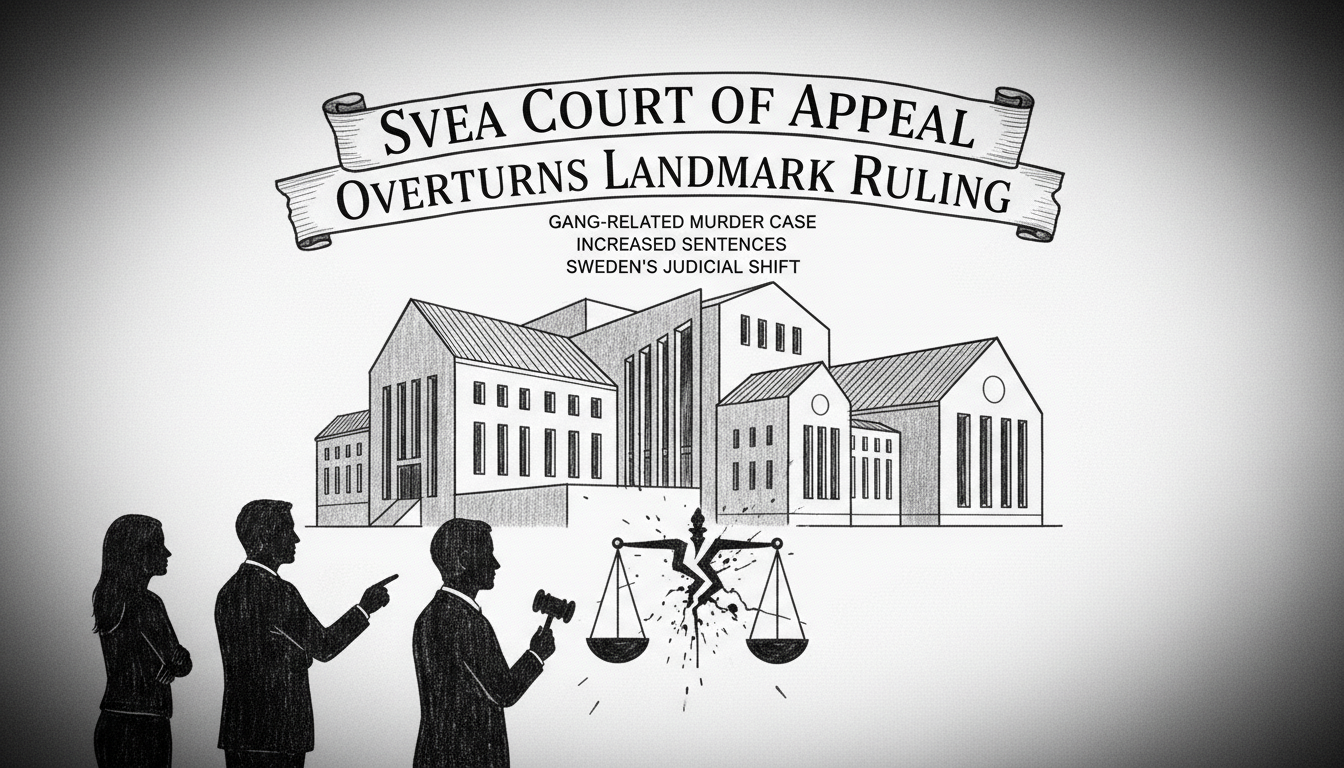The Svea Court of Appeal has dramatically altered a high-profile murder case involving criminal networks. Two additional defendants now face convictions for the killing of a teenage boy. This reversal demonstrates Sweden's judicial system addressing gang violence with increased severity.
The original district court trial had convicted three men for murdering one victim but acquitted all suspects in the second killing. Prosecutors successfully appealed that verdict by presenting new evidence. Court of Appeal Judge Daniel Thorsell stated the comprehensive evidence clarified where, when, and by whom the 14-year-old victim was murdered.
A 32-year-old man previously sentenced to life imprisonment for one murder now receives additional conviction for the second killing. His life sentence remains unchanged. A 19-year-old defendant receives eight years imprisonment for the same crime. Another 33-year-old man maintains his life sentence for directing others to commit murders.
The court also upheld life imprisonment for a 24-year-old convicted of aiding murder. This defendant faces deportation from Sweden following his prison term. Judicial authorities intensified punishments for several other defendants involved in serious criminal activities.
Judge Thorsell emphasized this case involves criminal gang violence with ruthless offenses carrying high penalty values. The appellate court consistently viewed these crimes more seriously than the original court. This pattern reflects Sweden's judicial approach to organized crime.
These developments occur amid broader Stockholm politics addressing gang violence. The Swedish government continues implementing policies to combat criminal networks operating throughout Sweden. Recent Riksdag decisions have strengthened legal tools against organized crime.
The Swedish Parliament has debated sentencing frameworks for gang-related offenses throughout the current term. Government policy in Sweden increasingly focuses on both prevention and stringent punishment for serious crimes. Legal experts note appellate courts now frequently reassess initial rulings in complex gang cases.
This judicial process demonstrates Sweden's layered legal system where district court decisions face thorough appellate review. The outcome highlights how new evidence can substantially alter case outcomes. Such developments carry implications for future gang-related prosecutions across Sweden's judicial landscape.
International observers monitor how Swedish courts balance rehabilitation with public safety concerns. This case particularly illustrates the challenges in prosecuting multi-defendant gang crimes where evidence emerges progressively. The final verdicts now provide closure for victims' families after extensive legal proceedings.

